Lecture 20: Lock-free and Bounded Queues
Last Time
- Introduced
Poolinterface:void put(T item)T get()
- Gave lock-based queue implementation
- lock
enqanddeqmethods (not nodes)
- lock
Today
- Finish up lock-based queue
- Implement lock-free queue
- Discuss a bounded queue
Unbounded Queue in Pictures
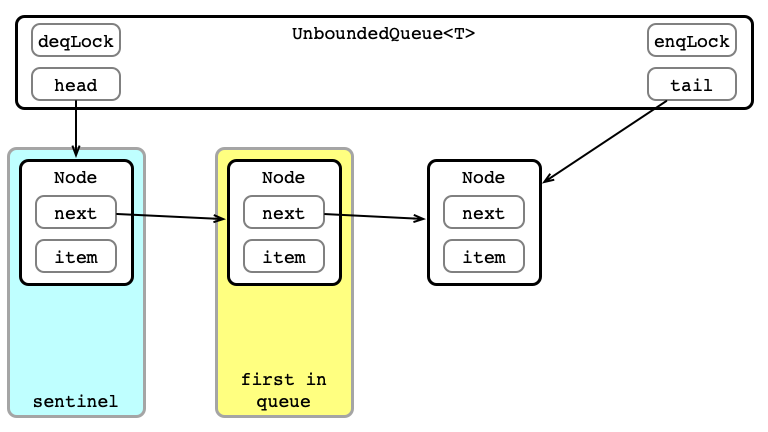
Dequeue 1: Aquire deqLock
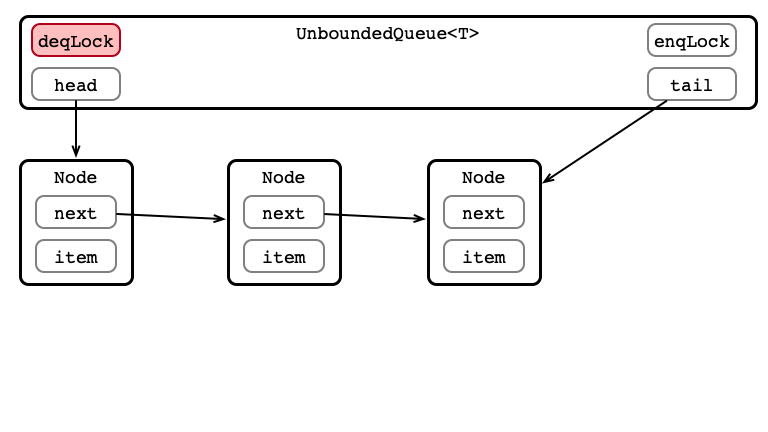
Dequeue 2: Get Element (or Exception)
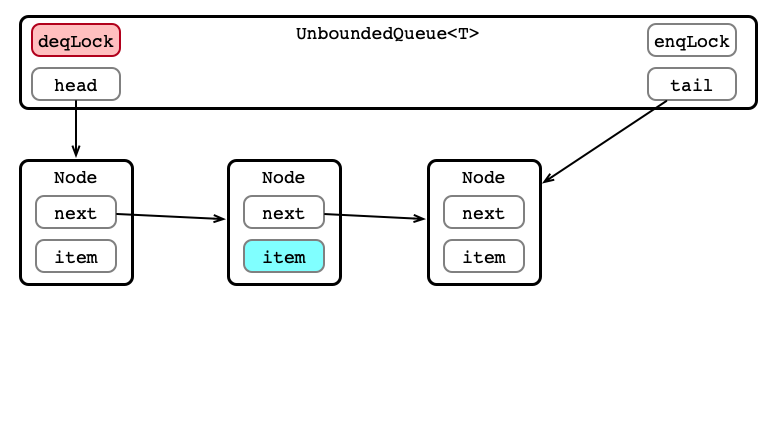
Dequeue 3: Update head
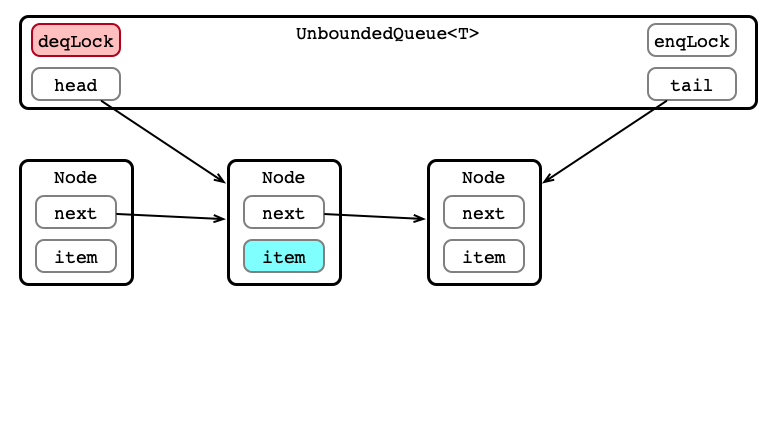
Dequeue 4: Release Lock
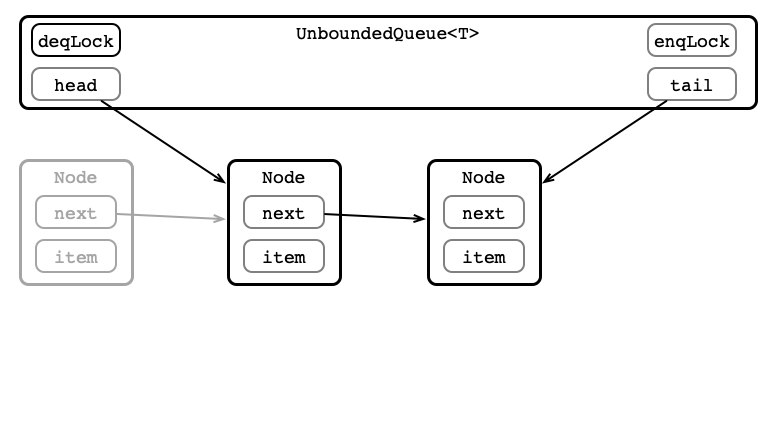
Enqueue 1: Make Node
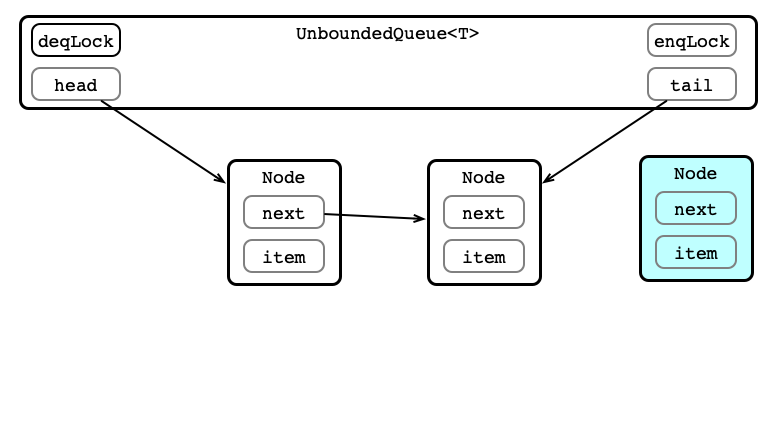
Enqueue 2: Acquire enqLock
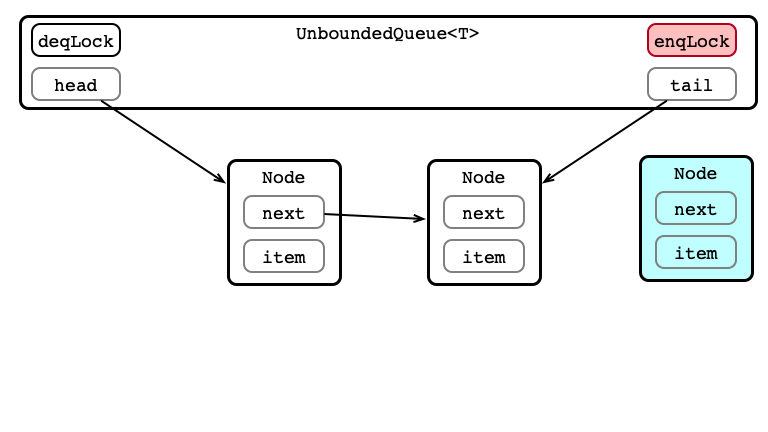
Enqueue 3: Update tail.next
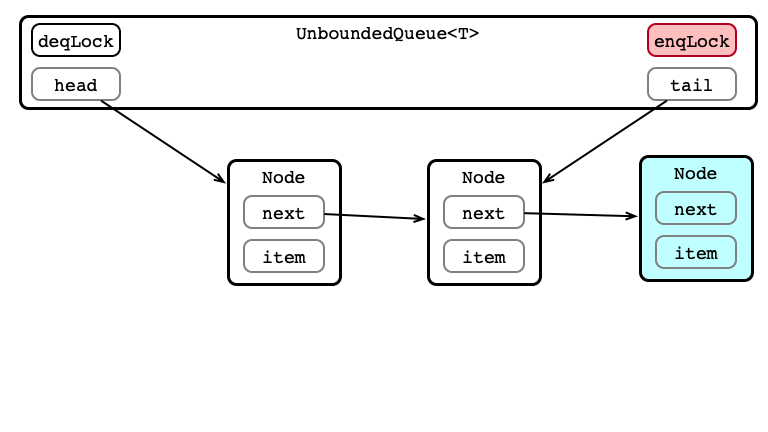
Enqueue 4: Update tail
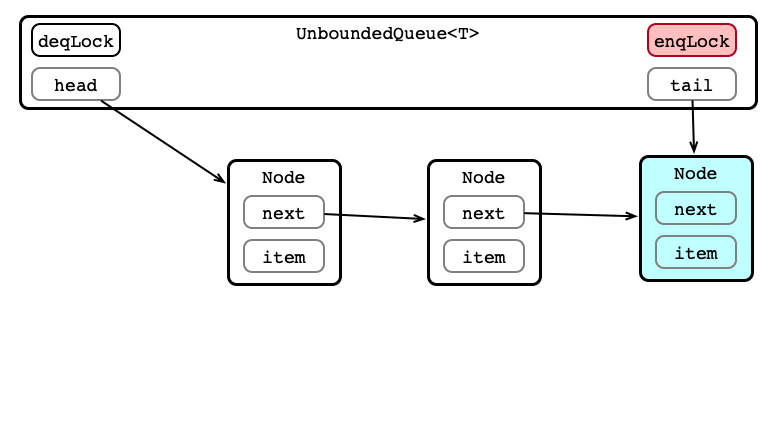
Enqueue 5: Release Lock
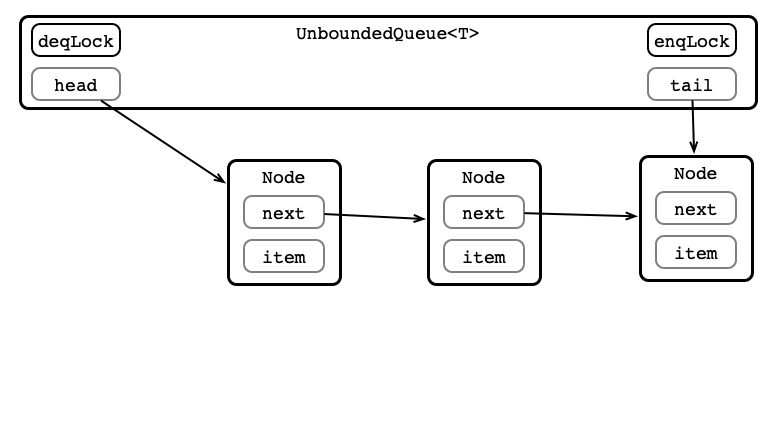
Unbounded Logic
Easy to reason about:
- concurrent calls to
enq- one acquires
enqLock - others wait
- one acquires
- concurrent calls to
deq- one acquires
deqLock - others wait
- one acquires
What about concurrent calls to enq/deq?
- Ever an issue?
Concurrent enq/deq
- Okay if queue is not empty
-
headandtailrefer to different nodes - no concurrent modification
-
- What if queue is empty?
Concurrent Subtlety
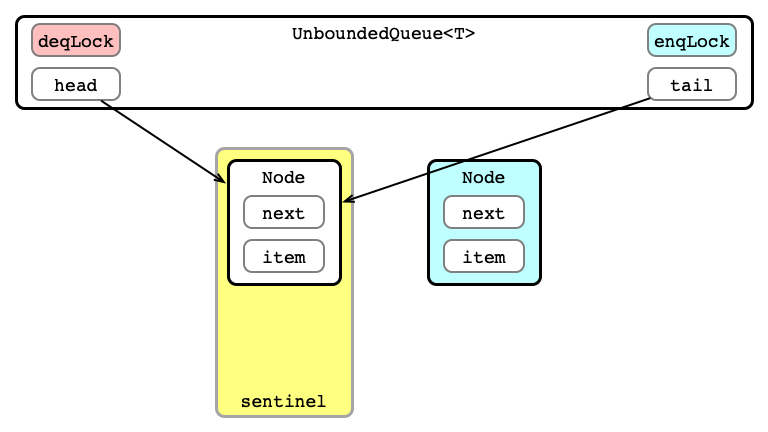
Concurrent Subtlety

-
deqchecks forhead.next -
enqupdatestail.next(=head.next)
Who wins?
Linearizing enq()
public void enq (T value) {
enqLock.lock();
try {
Node nd = new Node(value);
tail.next = nd;
tail = nd;
} finally {
enqLock.unlock();
}
}
Linearizing deq()
public T deq() throws EmptyException {
T value;
deqLock.lock();
try {
if (head.next == null) {
throw new EmptyException();
}
value = head.next.value;
head = head.next;
} finally {
deqLock.unlock();
}
return value;
}
Something to Consider
enq linearizes to
tail.next = nd
- this happens before
tailis updated
deq linearizes to
head.next == null
- this happens before
headis updated
So:
-
headandtaildon’t always point to first (predecessor) and last items in the queue
Why is this not a problem?
Why is this not a problem?
head and tail don’t always point to first (predecessor) and last items in the queue?
Not a problem because
- Nodes lock
enq/deqoperations -
tail/headupdated before lock released - only
enqcares abouttailvalue- other enqueuers don’t modify until after
tailupdated
- other enqueuers don’t modify until after
- only
deqcares aboutheadvalue- other dequeuers don’t modify until after
headudpated
- other dequeuers don’t modify until after
- crisis averted
What is the Next Question?
…we’ve got a queue with locks…
Can We Make a Lock-free Queue?
Use AtomicReferences for head/tail/next
- can atomically verify/update fields with
compareAndSet - e.g. for
enqNode nd = new Node(item); Node last = tail.get(); Node next = last.next.get(); if (next == null) { if (last.next.compareAndSet(next, node)) { tail.compareAndSet(last, node); } }
The subtelty
- Cannot modify both
tailandtail.get().nextatomically - At some point,
tailwill not refer to last node in list - Without locks, other threads will be able to see this!
The Challenge
enq and deq must function properly even if:
-
headandtaildon’t point where they should - other
enqanddeqoperations are in progress- partially complete method calls
An Idea
Clean up each others’ messes!
- Call to
enqcan detect iftailisn’t correcttail.get().next != null
- If this occurs, update tail:
Node last = tail.get(); Node next = last.next.get(); if (next != null) { tail.compareAndSet(last, next); }
Threads helping each other!
LockFreeQueue
public class LockFreeQueue<T> implements SimpleQueue<T> {
private AtomicReference<Node> head;
private AtomicReference<Node> tail;
public LockFreeQueue() {
Node sentinel = new Node(null);
this.head = new AtomicReference<Node>(sentinel);
this.tail = new AtomicReference<Node>(sentinel);
}
public void enq(T item) {...}
public T deq() throws EmptyException {...}
class Node {
public T value;
public AtomicReference<Node> next;
public Node(T value) {
this.value = value;
this.next = new AtomicReference<Node>(null);
}
}
}
Lock-free Enqueue Method
public void enq(T item) {
if (item == null) throw new NullPointerException();
Node node = new Node(item);
while (true) {
Node last = tail.get();
Node next = last.next.get();
if (last == tail.get()) {
if (next == null) {
if (last.next.compareAndSet(next, node)) {
tail.compareAndSet(last, node);
return;
}
} else {
tail.compareAndSet(last, next);
}
}
}
}
Lock-free Dequeue Method
public T deq() throws EmptyException {
while (true) {
Node first = head.get();
Node last = tail.get();
Node next = first.next.get();
if (first == head.get()) {
if (first == last) {
if (next == null) {
throw new EmptyException();
}
tail.compareAndSet(last, next);
} else {
T value = next.value;
if (head.compareAndSet(first, next))
return value;
}
}
}
}
Cool.
Let’s test the implementations!